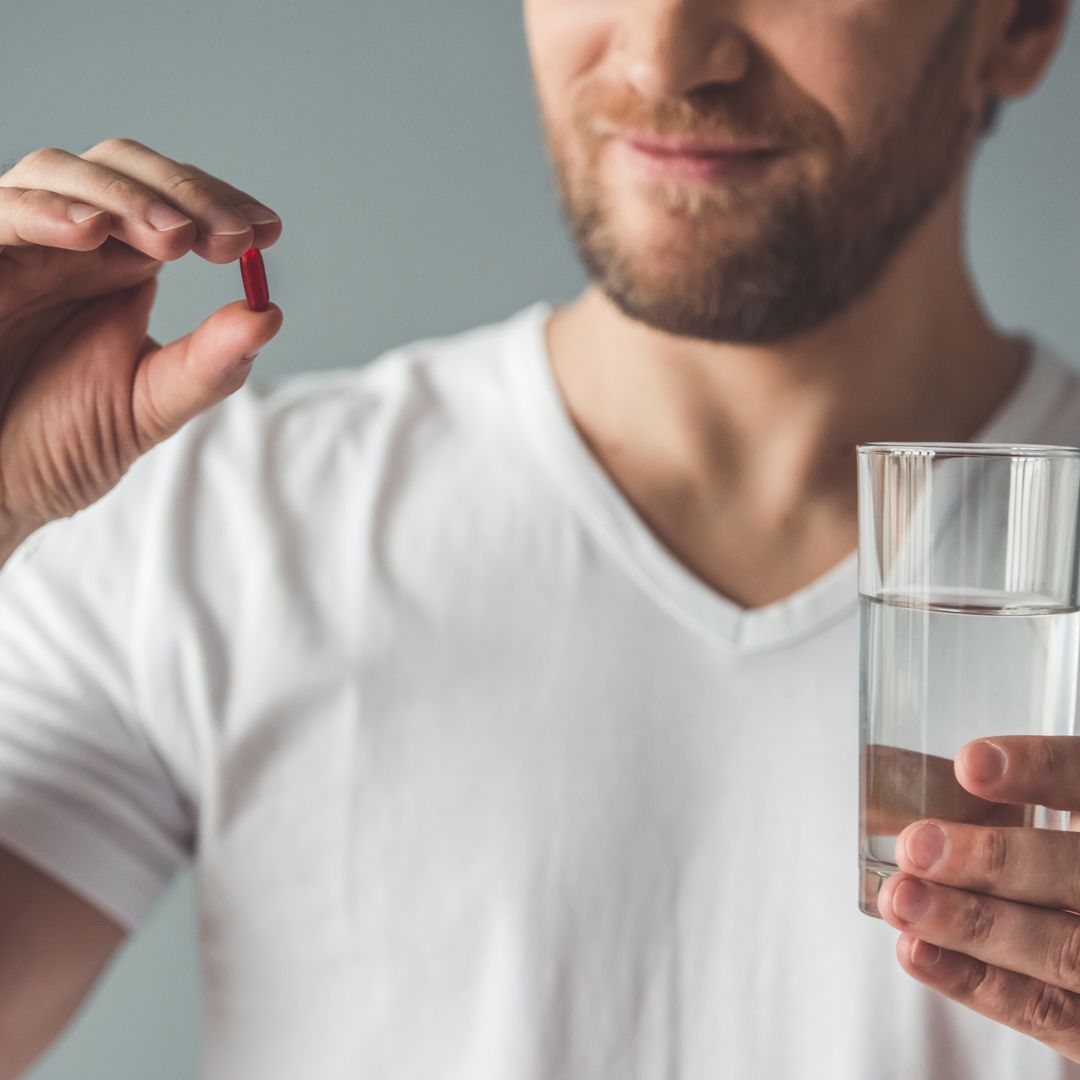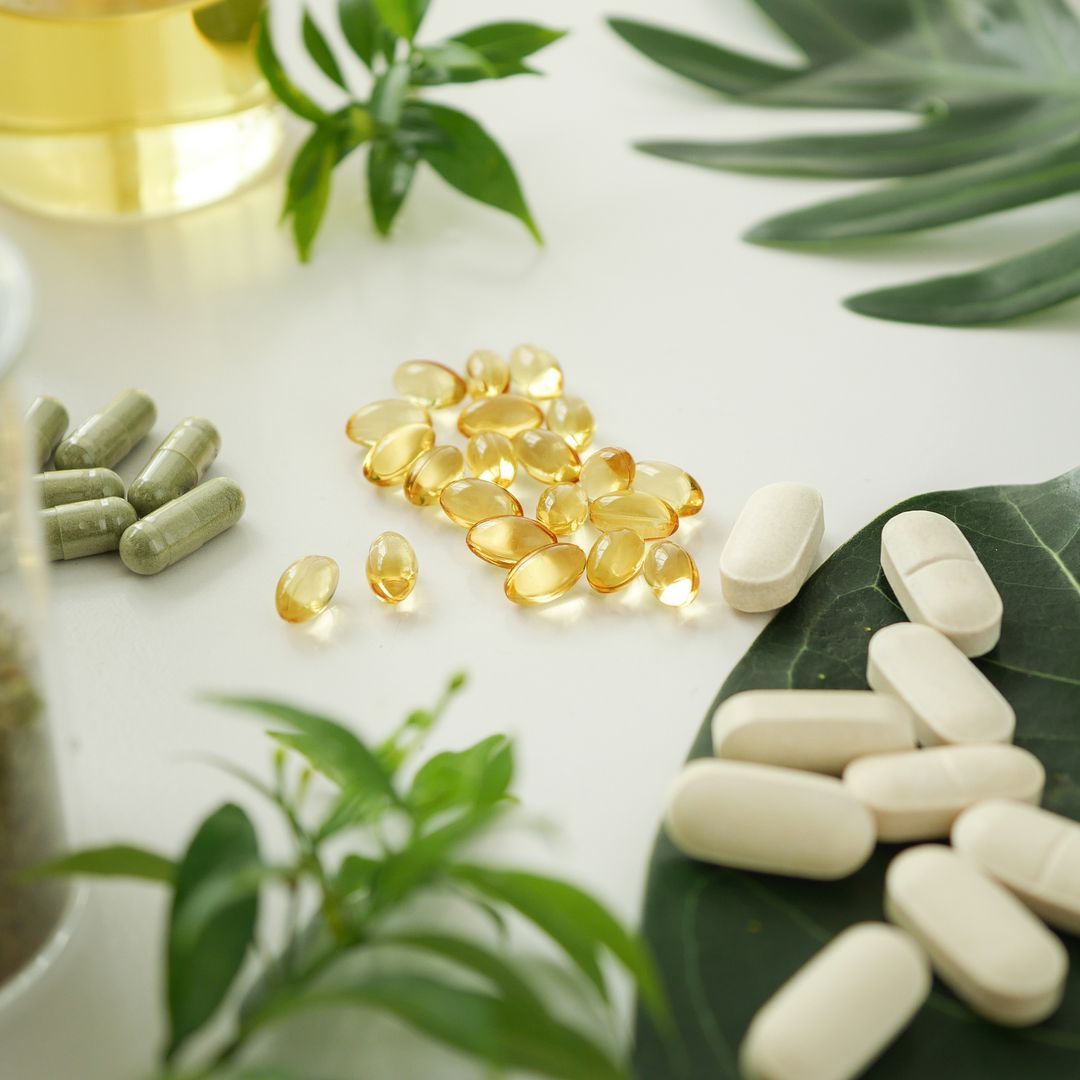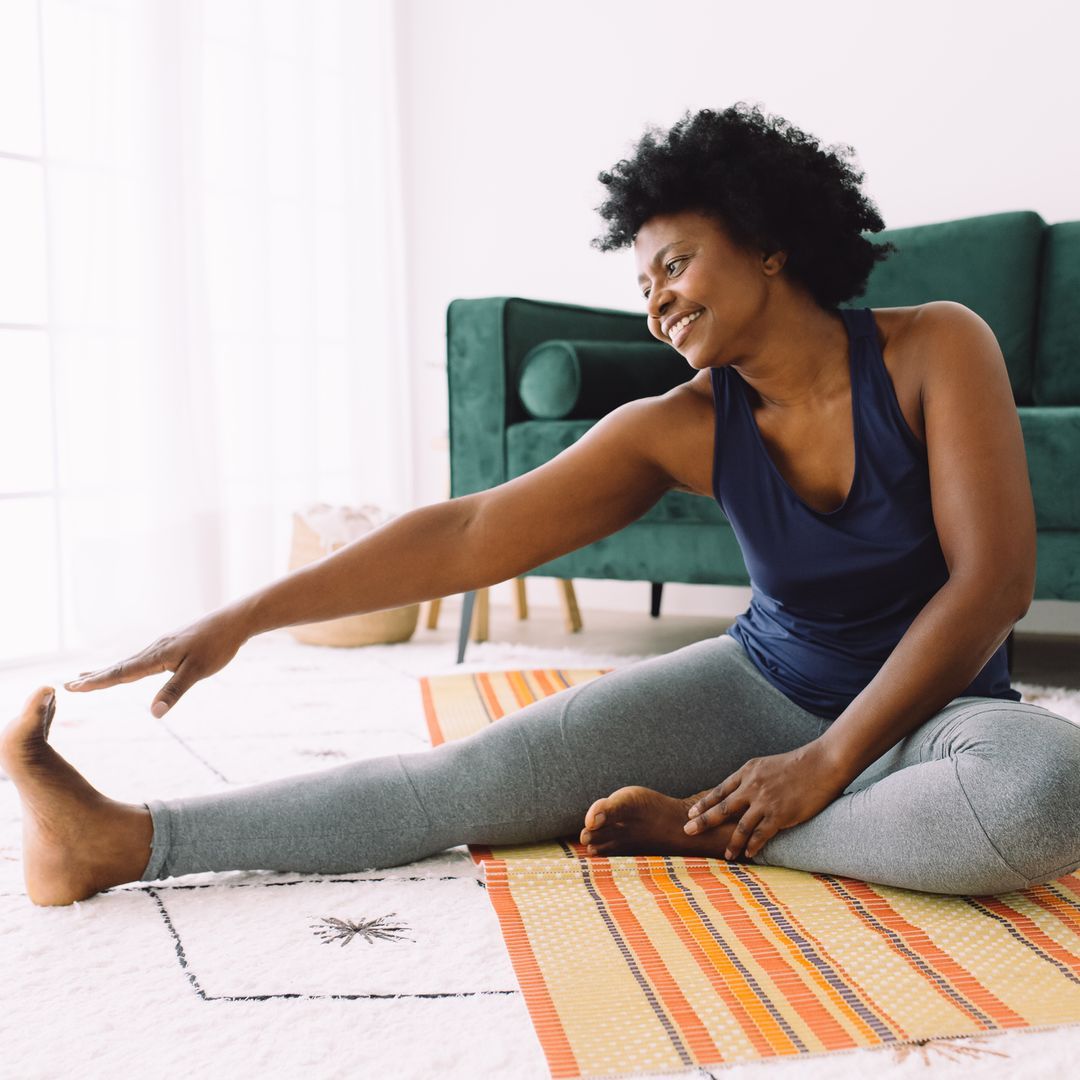Summary
- Using supplements to help slow down the natural ageing process is something humans have been doing for hundreds of years. The scientific backing on whether these supplements work is still ongoing, but some compounds show promising signs for their antioxidant and anti-inflammatory properties.
- When looking into how to get younger skin, the ideal route is prevention. This means following a healthy lifestyle, eating a balanced diet and protecting your skin from the damaging sun rays. No supplement out there will turn back the clock and magically make your skin look younger.
- Some of the most researched and used ingredients in anti-ageing supplements include curcumin, CoQ10, collagen, resveratrol, selenium, and vitamins C and E. These have all been found to support the natural ageing process and could potentially help slow down premature signs of ageing through topping up compounds our bodies become less active in producing as we age.
- The research into whether these anti-ageing supplements actually work and their long-term impact is ongoing. We know it is best to protect your skin now for a younger-looking future so closely monitoring your health and lifestyle is advisable for positive ageing. One of the most insightful ways to evaluate your current ageing trajectory is to conduct routine biological age tests, such as those provided by GlycanAge.
Introduction
A growing number of skin anti-ageing supplements appear on the market – many promising to turn back the clock and give us a youthful glow. For many of us, it sounds too good to be true, and that is because it is likely the case. Taking supplements for skin health is nothing new, but much of the research behind them is.
While we know that it is not possible to turn back time, it may be possible for some vitamins and supplements to help defend the skin against the effects of ageing. This article will examine anti-ageing supplements, their ingredients, and whether they are worth the hype.
What Are Anti-Ageing Supplements?

While ageing is an unavoidable part of life, most people want to keep their youthfulness for as long as possible. Scientists have identified a number of substances that may help slow down specific ageing processes and help prevent age-related diseases. The bulk of these studies are still in their infancy, and a lot more information is required to truly understand their long-term effects on the human body. However, if there is any potential behind a compound having anti-ageing properties, people seeking a younger appearance will want to try it.
In order to treat ageing skin, we need to know the underlying problem. Most dermatologists will agree that inflammation is at the heart of the problem, so search for ingredients with strong anti-inflammatory properties. Although many of the anti-ageing compounds can be produced naturally by the body and found in many nutrient-rich foods, it can become harder for our bodies to maintain optimum levels as we age. This has led to the advancement of supplements.
Anti-ageing supplements can come in many forms, which can be topically applied or ingested – for example, skin creams, face serums, vitamin supplements and powders. People take anti-ageing supplements in the hope of preventing or improving ageing signs like wrinkles, staffing, redness and poor texture.
It is important to remember that it is impossible to stop yourself from getting older, so an anti-ageing supplement will not magically make you look ten years younger. However, it is possible to make some changes to your lifestyle to slow down some ageing processes and promote healthy ageing. Therefore, exercising regularly, following a nutrient-rich diet, avoiding smoking and staying out of the sun are some of the best ways to slow down the effects of ageing.
Ingredients Found In Anti-Ageing Supplements

When searching for the best anti-ageing supplements, it is advisable to have some understanding of what is actually in them. The list of ingredients can be extensive, but we have selected some of the most commonly used ones so you can broaden your anti-ageing ingredient knowledge.
The turmeric plant has a substance called curcumin. It is understood to be an antioxidant and has anti-inflammatory properties at a cellular level. In addition, research has shown it has the potential to promote skin health and help protect against some age-related diseases. Multiple scientific papers on curcumin's role in anti-ageing have reported promising signs of helping protect the skin from skin exposure – one of the major causes of premature skin ageing. In addition to its anti-inflammatory and antioxidant effects, it may also work as an effective moisturising agent and help improve skin firmness.
Coenzyme Q10 (CoQ10) is an antioxidant that is naturally produced by the body. As we age, the levels of CoQ10 decline, so some people take CoQ10 supplements with the hope it will help them look younger for longer. Although some research shows that CoQ10 is a potent antioxidant that promotes collagen production, more studies must be completed to understand its true anti-ageing impact.
Unfortunately for our skin, it has been found that we could start losing collagen in our 20s and, for some, as young as their late teens. Collagen is another natural protein made in the body, and it helps improve skin elasticity and reduces the appearance of fine lines and wrinkles. Although collagen supplements may not be able to make you look younger, they could help minimise additional collagen loss.
Part of a group of compounds called polyphenols, resveratrol is known to have antioxidant and anti-inflammatory properties. In theory, resveratrol can help protect cells against damage that leads to cellular ageing. It can be found naturally in grapes, barriers and dark chocolate and is also a popular ingredient in anti-ageing supplements.
When looking at vitamins for ageing, vitamin C is high on the list due to its antioxidant properties. Studies have shown that it has the potential to improve skin tone and texture and reduce signs of ageing. In addition, it is known for its complexion-brightening effects and potential to impede melanin production (the pigment responsible for skin colour). Vitamin C could also help fade dark spots and dull skin to give the skin an improved youthful glow.
Vitamin E
Several research papers show that vitamin E could be an excellent anti-inflammatory ingredient. It has been a popular ingredient in dermatology since the 1950s when studies around the vitamin's skin benefits started to grow momentum. Vitamin E could potentially be instrumental in helping prevent inflammatory damage after sun exposure as it could reduce UV-induced skin swelling, skin thickness, and other signs of skin inflammation.
For those new to minerals, you may not have come across this trace mineral. Although we only need a small amount of this mineral to support our metabolism, selenium has attracted attention due to its antioxidant properties. Much more research is necessary into the long-term effects of taking supplements containing selenium, but it could potentially help protect the skin against free radicals.
Do Anti-Ageing Supplements Actually Work?

Hundreds of supplements are now available on the market, and many are advertised as having anti-ageing compounds. Unfortunately, many of these "anti-ageing" supplements have only been studied on a cellular level or in animal studies, so there is little evidence of them having the same effect on human skin health.
With so many anti-ageing supplements claiming youthful skin and helping fight the signs of ageing, it can be easy to be pulled into the hype. However, it is worth pointing out that many of the studies which are being carried out on supplements are sponsored by companies manufacturing the anti-ageing products or the ingredients found in them.
The best way to save your skin from premature ageing is to stay out of the sun, get plenty of sleep, drink water, eat a healthy diet and follow an active lifestyle. Including anti-aging foods in your diet can also support your skin and overall health. Additionally, staying hydrated with anti-aging drinks can aid in maintaining skin elasticity and reducing signs of ageing. We understand this is unhelpful hindsight for some, as many of us have overindulged in sun exposure and late nights with little sleep.
It is possible to carry out routine biological age tests to monitor your wellness and make some changes to ensure all is being done to protect your skin from premature signs of ageing. GlycanAge uses the science of glycans (sugar molecules) to determine your biological age as they respond to lifestyle choices and indicate the inflammatory state of the immune system.
Understanding your biological age makes it possible to identify areas of your lifestyle that may need tweaking to ensure you are following a healthy path as you age. For example, in addition to helping ward off age-related diseases, you can make adjustments to help promote healthy-looking skin.
How to Choose the Right Anti-Ageing Supplement for You
Consider Your Biological Age
Understanding your biological age can help identify areas for improvement in your lifestyle to promote healthier ageing. GlycanAge offers a unique way to track your ageing process and see how your body responds to lifestyle changes.
Evaluate Supplement Quality and Dosage
Not all supplements are created equal. It's important to look at the quality of the ingredients and the recommended dosages. Opt for supplements that are backed by credible scientific research.
Consult with a Healthcare Professional
Before starting any new supplement regimen, it’s advisable to consult with a healthcare professional to ensure it aligns with your health goals and needs.
Boosting Anti-Ageing Supplement Results with Lifestyle Changes
Diet and Nutrition Tips
Eat a nutrient-rich diet filled with fruits, vegetables, and healthy fats to support healthy skin and reduce inflammation.
Exercise and Physical Activity
Regular physical activity can help improve circulation, boost collagen production, and promote healthy ageing.
Stress Management and Sleep
Managing stress and ensuring adequate sleep are crucial for maintaining healthy skin and slowing the ageing process. Consider mindfulness practices such as meditation or yoga to support your overall wellbeing.
Take Control Of Your Health With A GlycanAge Test
Understanding your biological age with a GlycanAge test can provide valuable insights into your overall health and ageing trajectory. The GlycanAge test measures changes in glycans, which are biological markers linked to inflammation and immune system function.
By knowing your biological age, you can make informed decisions about your health and take proactive steps to improve your wellness. This includes evaluating your supplement intake, diet, and lifestyle habits to slow down the ageing process and promote longevity.
Frequently Asked Questions (FAQs)
What supplements are good for anti-ageing?
In addition to following a nutritious diet and lifestyle, some supplements could potentially help slow down the ageing process. Some substances showing promising signs of age-supportive effects include curcumin, collagen, CoQ10, and vitamins C and E.
How can I stop ageing naturally?
As we age, our skin becomes thinner, drier and becomes wrinkly. Some of the best choices you can make to slow the natural ageing process include restricting sun exposure, not smoking, moderate alcohol consumption, eating a balanced diet, exercising most days, and keeping your skin cleansed and moisturised.
What causes fast ageing?
It is no secret that the top cause of premature ageing is exposure to sunlight. Ultraviolet light (UV) and spending extended time in the sun will age your skin more quickly than it would naturally. The effects of sun exposure are known as photoaging and are responsible for almost 90% of the visible ageing signs on your skin.
At what age do you start looking old?
It is a little alarming to hear that most of us will start seeing skin ageing from around 25 years old. This is when the body naturally starts to reduce its production of collagen levels, and the skin begins to lose elasticity. However, the ageing trajectory will shoot up to almost three times faster between the ages of 50 and 60, so it is best to start young when making lifestyle choices for a more youthful appearance in older years.
Which vitamin is best for wrinkles?
When it comes to vitamins, the best route is to have a balance and try to include them all. However, for wrinkles, it has been found that vitamins A, C, and E all show promise if supporting the skin's natural renewal processes and provide valuable antioxidants.




